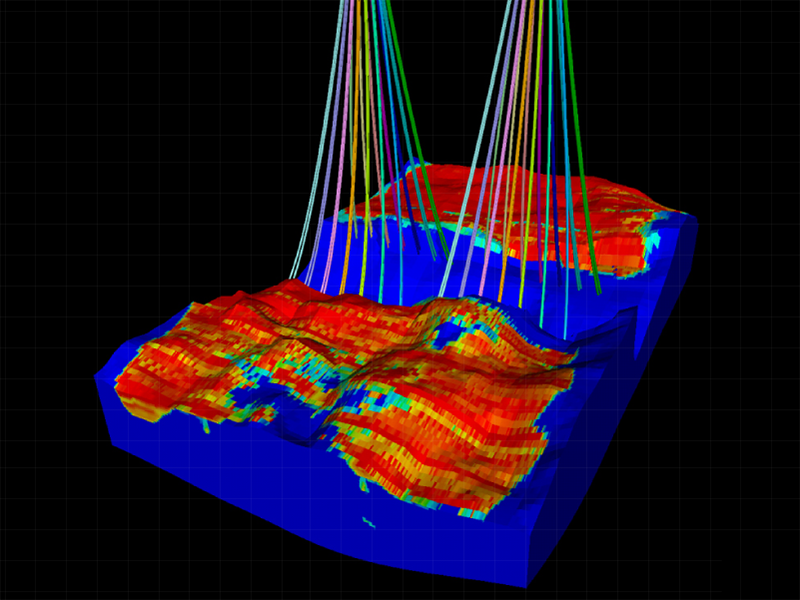Maximize limited data to gain valuable insights and reduce uncertainty
As the industry has moved into more intensive development with substantial capital outlays in a difficult price scenario, it’s more important than ever that we drill the best wells on the best acreage and get it right the first time. Having confidence in your reservoir-scale model begins with robust petrophysical workflows that later feed into your earth scale model.
Wellbore data is limited and varied. You may have variable data for wells of varying vintages that require basic log conditioning, such as depth shifting, splicing and log normalization.
The cloud-enabled DELFI cognitive E&P environment is designed for these real-world conditions that allows you to glean valuable insights in a wide range of scenarios—regardless of your expertise level or the breadth of available data. Its adaptive capabilities can take your data to new levels—without the excessive IT requirements, complex hardware and massive computing power associated with conventional G&G software. This means you can improve decision making, reduce exploration risk, maximize reservoir penetration, optimize well construction, forecast well and fieldwide performance on project-by-project basis and on a budget.

Create accurate calculations and models for various scenarios
Within DELFI, the Techlog platform provides a comprehensive set of tools for processing, interpreting, and analyzing multiple types of data across various scenarios and domains. You can run simplified or more advanced petrophysical workflows to reduce uncertainty during formation evaluation. Deterministic workflows calculate petrophysical parameters sequentially and are easy to use—even for non-petrophysicists. For more advanced users, probabilistic workflows use a randomly determined sequence of observations to quantify uncertainty and increase confidence in the model.
- Use a deterministic workflow to obtain reliable petrophysical outputs with limited data availability
Even if you only have scarce wellbore data, such as triple combo, you can still generate detailed and accurate petrophysical calculations in house. - Build on the above data to run a probabilistic workflow and improve decision making
Users with a good understanding of the geology can build upon the first set of calculations and run a nondeterministic or probabilistic formation evaluation to improve the accuracy of the results. - Incorporate advanced data and measurements in a probabilistic workflow to reduce uncertainty and mitigate risk
During petrophysical interpretation, users can leverage advanced data to provide even greater value helping to identify the best targets. Accurate petrophysical parameter calculations allow for better decision making and overall risk mitigation when interpreting your earth model.
Learn more about how to incorporate your data to run each of these scenarios in more detail and turn what limited information you have into an earth scale model to gain valuable insights. Start reducing uncertainty and optimizing the performance of your wells today.
View this step-by-step video >>


